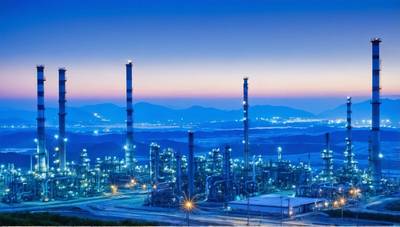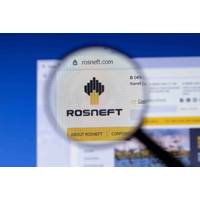The major South Korean petrochemical companies and their production
The South Korean government announced on Wednesday a plan for 10 petrochemical firms to restructure operations. This included a large reduction in their naphtha cracking capacity.
According to the Korea Chemical Industry Association, South Korea is home to some of the world's largest petrochemical companies.
OVERVIEW
South Korean producers suffered losses because of oversupply in China, which is the largest petrochemicals market, as well as a sluggish consumer demand.
According to KCIA, the country is the fourth largest petrochemical producer in the world, producing 13 million metric tonnes and 11 million metric tonnes per year of ethylene and Propylene, respectively.
Kpler's data showed that it was also the largest importer of petrochemical raw materials naphtha by 2024, with 652,000 barrels a day.
MAJOR PRODUCERS and PRODUCTION
LG CHEM
LG Chem, based in Yeosu, is the world's largest producer of ethylene, a key plastic used for industries ranging from construction to automobiles. Its designed capacities are 3.380 million tons per year and 1.980 millions tons per year, respectively.
The petrochemicals unit recorded an operating loss in the second quarter of 90.4 billion Won ($65.29 millions).
LOTTE CHEM
Lotte Chemical, South Korea's 2nd largest producer, has an annual production capacity of 2,330 million tpy ethylene, and 1,189 million tpy propylene. The company also has subsidiaries in Malaysia, and an Indonesian project.
In order to improve its financial situation and reduce its debt, it sold a 25 percent stake in PT Lotte Chemical Indonesia, reducing its ownership from 49 to 24 percent. It also sold Lotte Chemical Pakistan at the beginning of this year.
Lotte Chem has reported an operating loss in the second quarter of 224.90 milliards won.
Yeochun NCC is a joint-venture between DL Chemicals and Hanwha Solutions. It has a production capacity of 2.285 millions tpy ethylene, and 1.289million tpy propylene.
DL Chemical is going to issue a 150 billion won loan to YNCC in order to pay off debts that are due this month.
YNCC posted an operating loss in 2024 of 150 billion won, compared to 239 billion in losses a previous year.
HANWHA TOTALENERGIES
Hanwha and TotalEnergies have a joint venture called Hanwha TotalEnergies. This company can produce 1,525 million tpy ethylene, and 1.064 millions tpy propylene.
The first quarter saw an operating loss of over 118 billion won, compared to a profit of about 51 billion won for the same period the year before.
HD HYUNDAI CHEMICLES
HD Hyundai Chemical is able to produce 850,000 tons per year of ethylene, and 451,000 tons of propylene. Trade sources claim that it is either interested in acquiring Lotte Chemical cracker or merging the cracker operations of the two companies at the Daesan Complex. HD Hyundai stated that no decision has been made.
It reported a loss of 170 billion dollars for the second quarter, compared to a profit last year of 560 millions dollars.
Korea Petrochemical Ind. Co. (KPIC), can produce 560,000 tpy propylene and 900,000 tonnes per year of ethylene at Ulsan.
KPIC reported a loss of 4.5 billion won for the second quarter after reporting a profit 53 million won one year ago.
GS CALTEX
South Korea's No. GS Caltex, South Korea's No. The petrochemical division of the company recorded a loss in the first three months of 53 billion won, compared to a loss in the previous year of 1 billion won.
SK GEOCENTRIC
SK Geo Centric is a subsidiary owned by SK Innovation, which also owns the top refiner in Korea, SK Energy. It can produce up to 660,000 tpy ethylene, and 380,000 tpy propylene.
Local media reported that the SK Group had stopped SK Geocentric from building a complex for plastic recycling in Ulsan.
S-Oil, South Korea's largest refiner, can produce 840,000 tpy propylene and 182,000 tpy ethylene at Ulsan.
S-Oil, the majority-owned company of Saudi Aramco, is building a 1.8-million-tpy ethylene facility.
Aramco announced its second quarter earnings that the Shaheen Project, Aramco’s largest investment in South Korea is on schedule to be completed in 2026.
S-Oil posted a loss of 344 billion yen in the second quarter, compared to a profit of 161 billion yen if you compare it with yearly results.
(source: Reuters)



